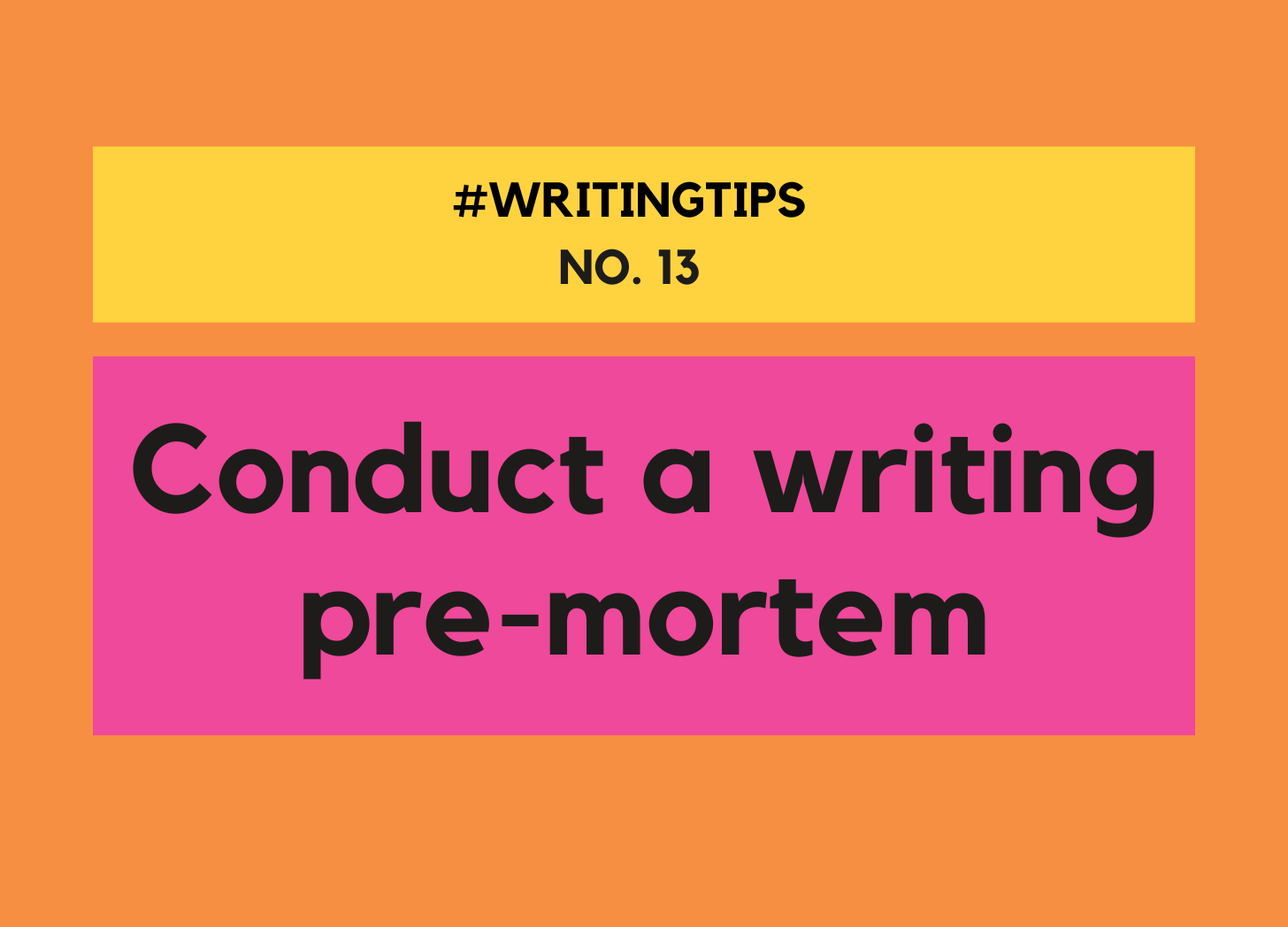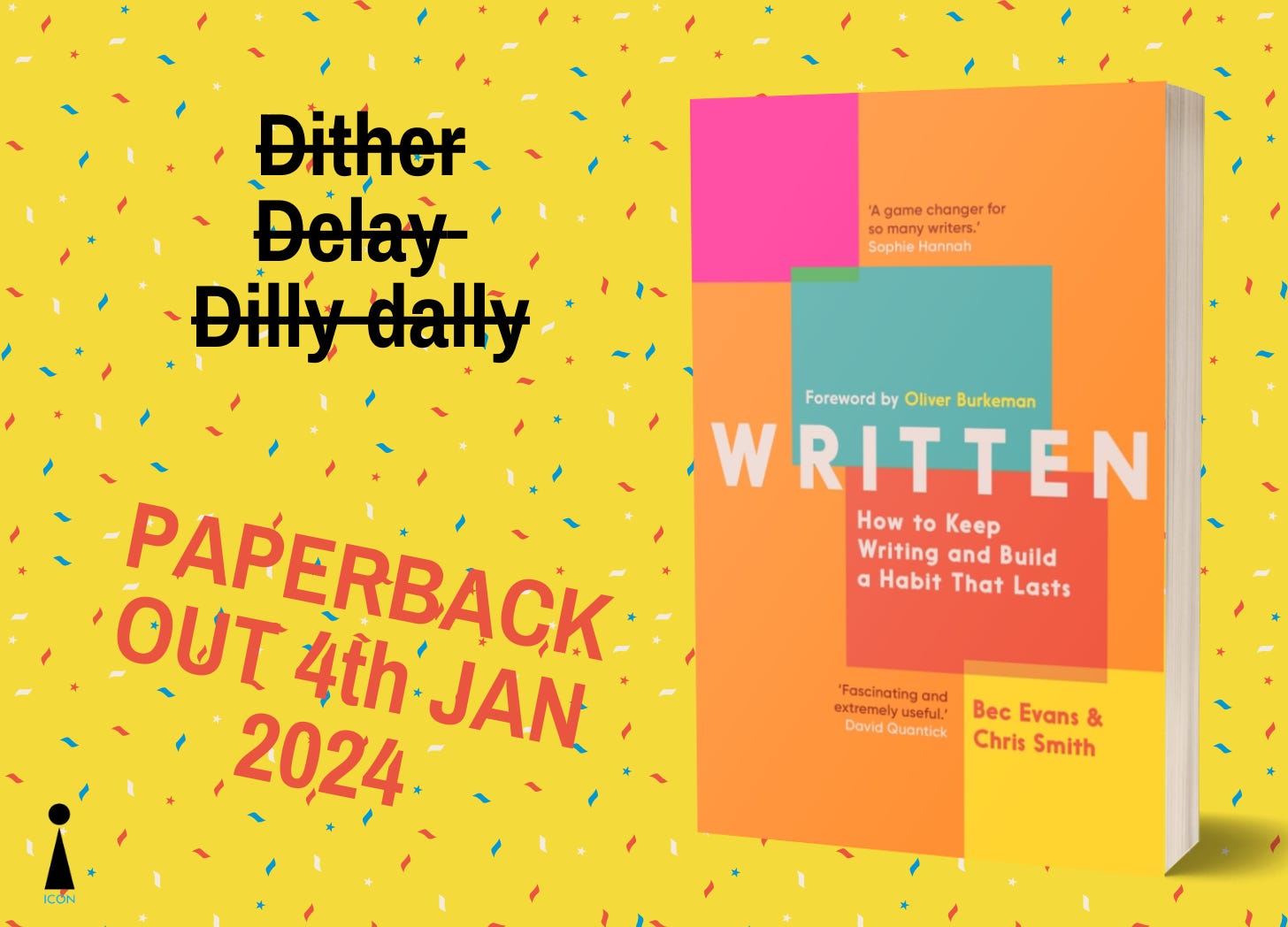Tip 13: Conduct a writing pre-mortem
How Seneca’s philosophy of pessimism can help you meet your goals. What Bec learn from taking part in Stoic Week, how to identify obstacles and run a writing pre-mortem.
Happy Monday!
I’ve spent the last week living like a Stoic. Nope, I’ve not been cos playing in a toga, but taking part in an annual experiment called Stoic Week. Run by academics from Exeter University since 2012 it encourages many thousands of participants to reflect on their daily life through the lens of Stoic philosophy.1
Being called ‘Stoical’ can be taken as a slur. Like being told you’re a bit of a cold fish. But the guiding principle of reason over emotion has influenced modern psychotherapeutic practices such as cognitive behavioural therapy.
I would argue (obviously) that it helps us become more aware of our emotions and in touch with them. It can also help you get the writing done with less stress.
The philosophy of pessimism
However, some of the daily practices are a bit of a downer.2 Take the morning reflection which is an essential part of Stoic Week. We were instructed: “When you wake up each morning take a few moments to compose yourself and then rehearse the day ahead, planning how you can make yourself a better person, while also accepting that some things lie beyond your control.”
This is rooted in the teachings of Seneca and his philosophy of pessimism where we contemplate the worst that can happen as a form of preparation. He wrote:
“Nothing ought to be unexpected by us. Our minds should be sent forward in advance to meet all the problems, and we should consider not what is wont to happen, but what can happen.” - Seneca
From ancient philosophy to psychology and business
Gabrielle Oettingen is a researcher interested in resilience and the role of positive thinking in helping people to meet their goals. She found that while having a rosy tinted view of what will happen is great for our mood, it is terrible for helping us put our plans into action.
She suggests pairing our dreams with a sound sense of reality, a process she calls mental contrasting. 3
Read: Does dreaming big work?
Scientist Gary Klein takes it a step further and with a spirit of pessimism advises business leaders to create a blueprint for failure. He calls this a pre-mortem.
In a kickoff meeting, a project team should review their plans, imagining they are six months in the future and that everything that could go wrong has. By predicting disaster they can build contingencies into the plans and increase the chance of success.
These modern day Senecas are right. Imagining the worst helps.
What will get in the way of your writing?
For writers, do as Seneca suggests and reflect on what you’d like to do today. Then imagine what will get in your way. We call this obstacle thinking and it is a key part of our coaching model.
As it is Monday morning, my goal was to work on my novel and then write this tip. However, I was expecting a phone call and had a meeting. Preparing myself to be interrupted in mid flow meant I didn’t get angry and resentful. Both of these ‘interruptions’ were under my control - after all, I scheduled them, I knew they would happen so I worked around them.
Imagining what will get in the way works for both long-term writing goals and your next writing session. Pair your dreams with the reality of your life and we promise it will help you make progress and not get knocked off course. Toga optional.
Keep writing, Bec
Hardback available now from amazon and all good bookshops.
Stoic Week is a global online experiment trying to see if people can benefit from following the ancient philosophy of Stoicism. Since its inception in 2012, almost 40,000 people have signed up with consistently positive results. Find out more about it and the Modern Stoicism team of academics and psychotherapists.
I first heard about Stocism when I read Alain De Botton’s book The Consolations of Philosophy back in 2000. While I highly recommed that book (and all his others!) this short School of Life Stoic explainer video voiced by him is a great starting point. Warning - it is a downer in places. I am also a big fan of Ryan Holiday’s Daily Stoic - book and website.
Find out more about the practical application of Oettingen’s research with her WOOP website. It is so helpful which is why she is one of our favourite psychologists.








If it weren’t for you guys, your book, and your posts, I’d be lost. All my life, I have told stories, had a vivid imagination, and created childhood plays. Yet, I could never write beyond my college Creative Writing classes. Even when told by my professor, I needed to continue my stories. I could not find a way to work writing into my busy life. Thus, days and years went by, and all I wrote were my morning pages and sometimes a journal. Here I am at 67, and thanks to you, I have finally learned there is a process for writing; whether or not I am busy, I can write. However, all my do’s, don’ts, and maybes had a purpose, as I was unprepared. Now, thankfully, I am writing an outline for a book, and my mind keeps coming up with ideas for more. I am no longer afraid that what I say doesn’t matter. I merely write anyway!
My son’s school, as they go into year 9, has told them to formulate a life “plan A” and plan B, but also a plan C for if it all goes tits up. I at first found this disturbing but now quite like that they are encouraging them to take a view that even plan C could be ok if thought through.? A bit like your pessimism training… :-)